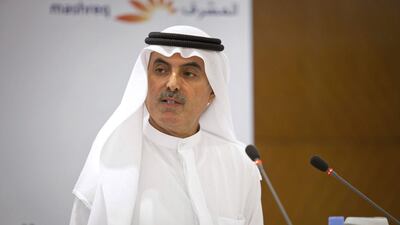Recent commentary in the media and debate during a number of industry conferences has highlighted the pressure that is being exerted on banks to recruit more UAE nationals. The fact is that the absolute number of UAE national staff working in the banking sector is already large, but has plateaued in the past year at around 11,700, after reaching a peak in 2012 of just over 12,500. While this is around an average 32 per cent of all bank employees, it could of course be higher. What is the cause of this bottleneck and how can it be resolved?
There is no lack of evidence that banks are trying hard to up their game on Emiratisation. Not a week goes by without one bank or another announcing a new scheme to either recruit more local staff or to fine-tune their training and career development. Some banks have even set up special academies and schools, with different types of training programmes to help them achieve their goals in this respect.
It is easy, however, to draw unfavourable comparisons with other Gulf countries and deduce that the UAE is lagging behind in terms of the proportion of nationals in the banking workforce. While the UAE Banks Federation is the first to recognise the importance of maximising the number of nationals working for banks in the country, this is not in our view the only measurement of success.
A more important one is how effectively UAE nationals are rising through the ranks and reaching positions of seniority in their respective organisations. From this perspective, we believe that a lot of progress has been made. There are a number of banks that can now claim that all of their branches are managed by UAE nationals, and that a growing proportion of their senior executives are local nationals.
Retention is an important measurement when talking about success of the Emiratisation programme in banks. It is always a challenge for any business, whether a bank or any other enterprise, to hold on to its most capable employees, especially with the levels of economic growth that we are now seeing in the UAE. Good people are poached, or want to further their own careers by seizing new opportunities.
The fact is that all of the federation member banks are seeking the most talented and high-potential staff, and that is just in the financial sector. Head for head, the UAE has significantly more banks than most other GCC countries (with the possible exception of Bahrain), so the challenge to meet employment quotas is that much more difficult to achieve.
At the same time, other segments of the economy are striving to attract more local nationals, for instance in technology, media, industry, engineering and energy. And let us not forget that 90 per cent of the 225,000 Emiratis in the workforce are employed in the public sector. While the Government is trying to encourage nationals to seek a wider choice of careers in the private sector, it still has a significant demand of its own to recruit new entrants into essential positions being vacated on retirement or the departure of existing employees.
But of the 22,000 employed in the private sector, 53 per cent work in the banking industry; banking is therefore clearly a popular choice for those who have opted for careers in the private sector. This is partly due to the nature of the work, and the environment in which it is done. But it is also because banking was the first sector to set targets for Emiratisation, as well as the best structured to provide training and a career path for its staff so they can be more productive and more useful to the whole economy.
So, what can banks do to increase their appeal to UAE nationals even further? I would suggest three priorities.
Firstly, they should continue to identify new initiatives to attract and enable UAE nationals to succeed in a career in the banking industry. Secondly, and related to the first point, they need to make sure that they are being as competitive as they can in retaining the most able staff, ie those who are the most likely to reach senior grades. This is not just about money – it is about making banking a job of choice. Thirdly, and possibly the most important priority, banks need to demonstrate that more UAE nationals are reaching the top. Although we have proportionally more UAE national CEOs in the banking sector than in any other sector in the economy, more need to rise through to the management committee level. If these elements are in place, numbers become a less important indicator of achievement, and career success becomes the magnet to attract others to follow.
AbdulAziz Al Ghurair is chairman of the UAE Banks Federation and chief executive of Mashreq
Follow us on Twitter @Ind_Insights

